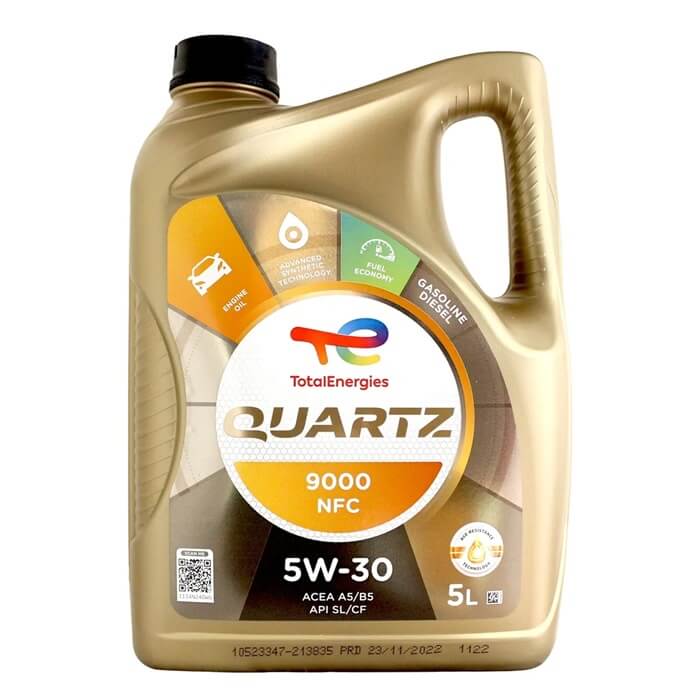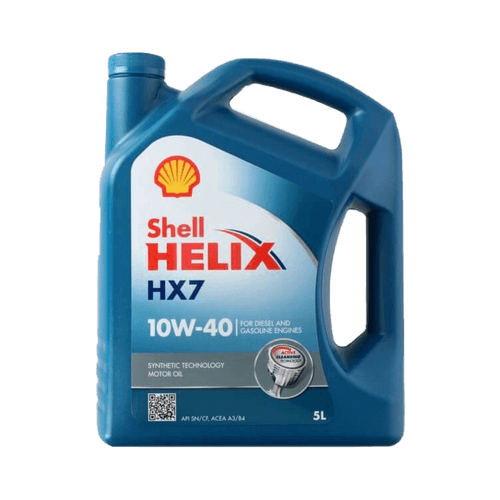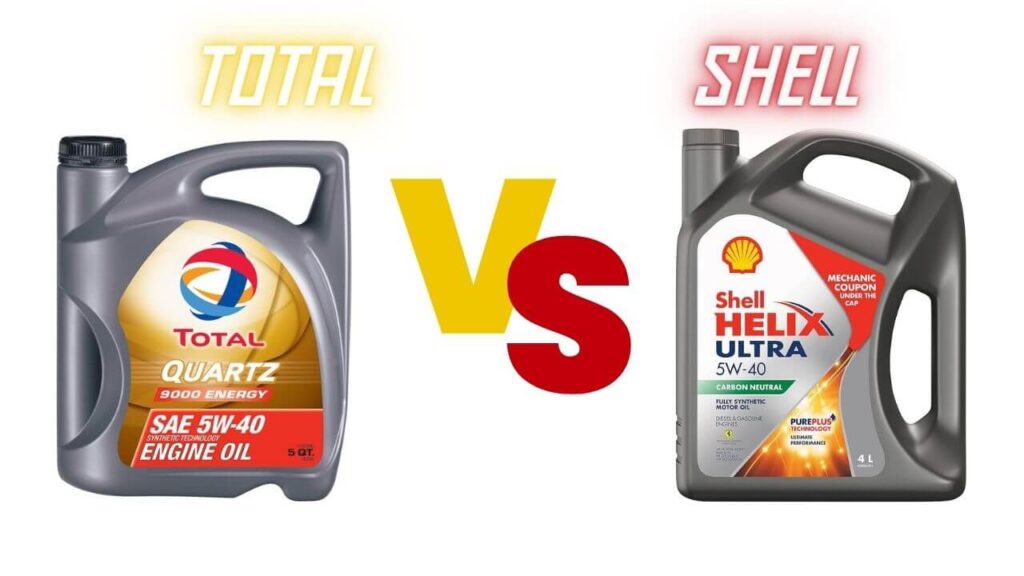Engine oil is an integral factor in ensuring the efficient operation of your vehicle. However, not all engine oils are appropriate for every car. It’s vital to pick out oil that supports your car’s engine necessities and specifications.
While Total and Shell work in the same sector, there are significant differences between their engine oils. In this article, we provide a detailed comparison of Total vs Shell engine oil to help you make an informed decision for your vehicle.
Total Engine Oil:
Total, a French multinational energy company, operates in the gas and oil industry. Their product includes various engine oils designed for different engines and vehicles. Total’s engine oils aim to provide excellent lubrication and protection, ensuring clean operation and extending engine life.

The company provides engine oils for diesel and fuel engines in motorcycles, passenger cars, commercial vehicles, and heavy-duty equipment. Total’s engine oils, such as Total Quartz and Total Rubia, feature advanced additive technology for optimum protection against corrosion, wear, and sludge formation.
Shell Engine Oil:
Shell, a global company, produces a variety of engine oils under the Shell Helix brand. Designed to lubricate and protect combustion engines, Shell’s oils contain a mix of base oils and components to lubricate, clean, and remove heat from important engine components.

The company gives a range of oils for distinct engine types, along with diesel, gasoline, and natural gas engines, with numerous specifications and viscosities to meet various car requirements.
Similar Posts:
Is Total Oil is Same as Shell? In-depth Analysis
Product Range:
Total and Shell, both valued oil companies, show differences in their product offerings, including variations in formulations and specifications.
These manufacturers provide various types of engine oil kinds designed for various cars and engines, covering diesel and gas engines, high-performance vehicles, and specialized purposes like heavy-duty equipment or motorcycles.
Total’s product range features Total Quartz (for passenger cars) and Total Rubia (for commercial vehicles). On the other hand, Shell’s lineup includes the Shell Helix for passenger cars and the Shell Rimula for heavy-duty applications. Each category is characterized by specific viscosity grades and formulations customized to meet precise engine requirements.
Oil Change Frequency:
The frequency of changing oil varies between Total and Shell oil depending on the unique oil product and its characteristics.
Shell Helix suggests an oil exchange interval of 15,000 miles, while Total Quartz recommends an oil change frequency of up to 5,000 miles.
Both Total and Shell provide a range of engine oil types, which include synthetic blend, full synthetic, and conventional oils. Synthetic oils, because of their advanced formulation and optimal performance, allow for longer intervals between changes compared to traditional oils. Positive, fully synthetic oils from both companies boast intervals of up to 15,000 miles between services.
Specifications and Approvals:
Total and Shell follow different industry specifications and receive approvals from various car manufacturers.
Total Quartz, for instance, meets specs such as ACEA (European Automobile Manufacturers Association) and API (American Petroleum Institute) and receives approvals from manufacturers like Mercedes-Benz, Hyundai, and Volkswagen.
Similarly, Shell Helix complies with API specifications and obtains approvals from renowned manufacturers such as Ferrari and BMW.
Overview of Differences Between Total And Shell
| Aspect | Total Engine Oil | Shell Engine Oil |
|---|---|---|
| Product Range | Quartz (Cars), Rubia (Commercial) | Helix (Cars), Rimula (Heavy-Duty) |
| Oil Change Frequency | Up to 5,000 miles (Quartz) | 15,000 miles (Helix) |
| Specifications and Approvals | Meets ACEA, API | Meets API |
| Environmental Impact | Emphasis on reduction, efficiency | Focus on efficiency, emissions |
Can You Mix Total and Shell Engine Oil?
It is not recommended to mix Total and Shell engine oils, as they come from different brands. It is important to avoid mixing them, even if they have the same viscosity.
Engine oils are exactly formulated to meet particular requirements. Mixing oils can lead to an imbalance in terms of viscosity, additives, and different properties, which could potentially cause engine damage.
Conclusion:
Total and Shell engine oils are renowned for providing top-notch engine performance and protection. When choosing between the two, consider factors such as your vehicle’s requirements, manufacturer recommendations, and personal preferences.
If you need help choosing between the brands, seeking advice from a car expert can be beneficial.
Lastly, no matter the brand you choose, regular oil changes and careful maintenance are pivotal in ensuring sustained engine overall performance and longevity.


